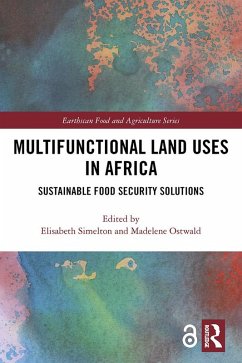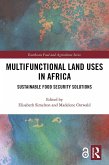Food security and livelihoods in Africa face multiple challenges in the form of feeding a growing population on declining land areas under the impacts of climate change. The overall question is what kind of farming systems can provide resilient livelihoods? This volume presents a selection of existing farming systems that demonstrate how more efficient use of land and natural resources, labour and other inputs can have positive effects on household food security and livelihoods. It examines how aquaculture, integrated water management, peri-urban farming systems, climate-smart agriculture practices and parkland agroforestry contribute multiple benefits. Drawing on case studies from Kenya, Ethiopia, Nigeria and Burkina Faso, contributed by young African scientists, this book provides a unique perspective on multifunctional land use in Africa and illustrates how non-conventional uses can be profitable while promoting social and environmental sustainability. Tapping into the global discussion on land scarcity and linking food security to existing land use change processes, this volume will stimulate readers looking for diversified land uses that are compatible with both household and national food security ambitions.
This book will be of great interest to students and scholars of African development, agriculture, food security, land use and environmental management, as well as sustainable development more generally, in addition to policymakers and practitioners working in these areas.
The Open Access version of this book, available at https://www.routledge.com/Multifunctional-Land-Uses-in-Africa-Susta-in-able-Food-Security/Simelton-Ostwald/p/book/9780367785420, has been made available under a Creative Commons Attribution-Non Commercial-No Derivatives 4.0 license.
Dieser Download kann aus rechtlichen Gründen nur mit Rechnungsadresse in A, B, BG, CY, CZ, D, DK, EW, E, FIN, F, GR, HR, H, IRL, I, LT, L, LR, M, NL, PL, P, R, S, SLO, SK ausgeliefert werden.









